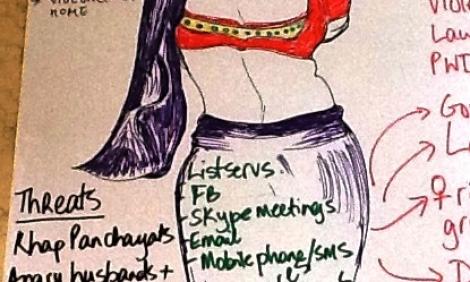
Feminist talk
EROTICS India: Women, sexuality and the internet
Within the arena of ‘women, sexuality and the internet’, the usual suspects of pornography, indecency, and non-consensual videography are often the first topics that come to mind. But women aren’t just subjects on the internet – they are users, too. A presentation at the EROTICS India workshop overturned some common assumptions by highlighting experiences of women online.
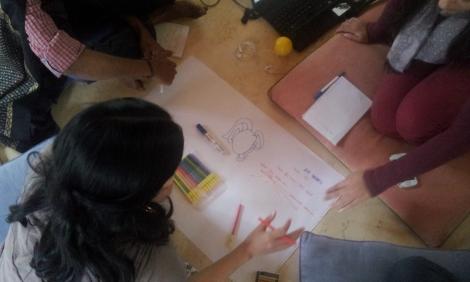
Feminist talk
Five principles for a feminist approach to technology
This blog post is second in a series of ten blog posts to report on the EROTICS India workshop, recently concluded in Delhi. All the blog posts in this series are written by Richa Kaul Padte, the official rapporteur at the meeting.

Feminist talk
An EROTICS call: Survey on internet regulation and sexual rights
Are you member of a non-governmental or a community-based organisation? Are you an academic or a researcher? Do you work within networks or coalitions? Are you an independent blogger? If you are a sexuality rights activist and you use the internet in your work, this call is for you.
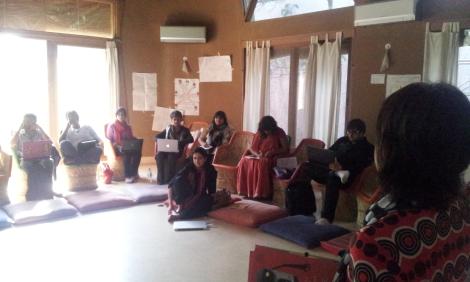
Feminist talk
EROTICS India: meet the participants
Bringing together sexual rights activists, women’s groups and internet activists, the first EROTICS India workshop – organised by Point of View, APC (Association for Progressive Communications) and the Internet Democracy Project - explored the relationship between sexual rights activism, sexuality, and the Internet. Focusing on issues ranging from rights to security to advocacy, the workshop…
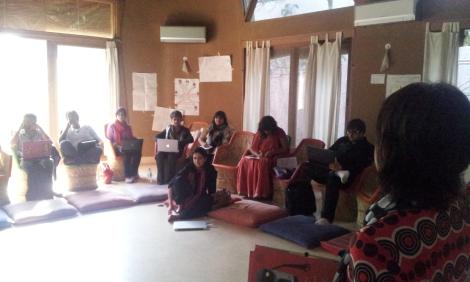
Feminist talk
“What is your price for the night?” – From ‘sexual strangers’ to ‘sexual citizens’ using ICTs
EROTICS – which stands for Exploratory Research on Sexuality and ITCs (same as ICTs)- is a global project that attempts to explore how marginalized sections are using the Internet and the ICTs, at large, to assert their sexual rights. The India chapter - #EROTICSIndia - was organised in Delhi recently by the Internet Democracy Project in collaboration with South Africa based APC and Point of View…

Feminist talk
New mobile app for sexuality research pulled back over privacy concerns
Melissa Ditmore reflects on release and subsequent pulling back of new application designed to collect data on sexual activity by Kinsey Institute in the USA. She outlines privacy concerns raised and how these holes can jeopardize users data. She also makes a make a case how this app once privacy gaps are fixed can assist to document unwanted and often under-reported sexual experiences, such as…
Feminist talk
The hack of Uganda’s government websites: Anonymous could do better
Uganda’s Government websites were hacked and defaced earlier this month. The hacksters asserted that their actions were to protest the Ugandan Government persecution of the LGBTI community of Uganda where being gay is considered criminal and where legislation is pending Uganda’s parliament that would impose harsh prison penalties on gay people, including the death sentence for so called “…
Publication
Statement: International Coalition Condemns Human Rights Violations Against W.O.N.E.T.H.A
The Women Human Rights Defenders International Coalition (WHRD IC) has expressed deep concern regarding the safety of five staff from the Uganda sex worker organization, Women’s Organization Network for Human Rights Advocacy (WONETHA). On May 7, police authorities raided WONETHA's small office and arrested two staff and three members. The staff members face ongoing harassment and criminal…
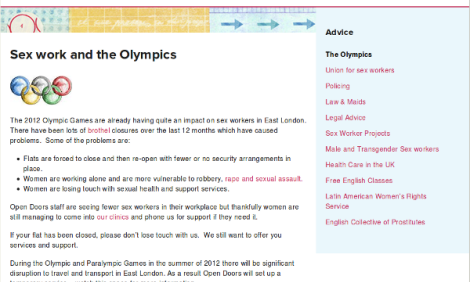
Feminist talk
Internet improves access to health care for sex workers in the Olympics area of London
The challenge of doing sexual health outreach work in East London has been transformed by police action in the run up to the Olympics. APC member GreenNet answered Open Doors Sexual Health Clinic’s request for a new website that could speak clearly to east London sexworkers with advice and resources.
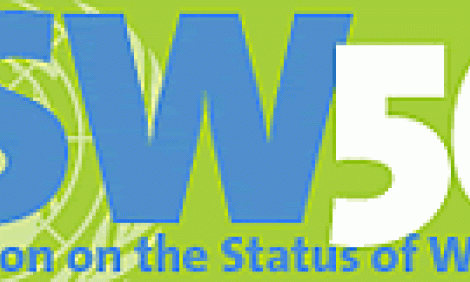
Feminist talk
Latest CSW session could be a real step backward
The inability of governments to agree on a common language of sexual and reproductive rights at the latest CSW session could potentially threaten established women's rights. So-called “traditional values” contradict the spirit and effectiveness of human rights.




